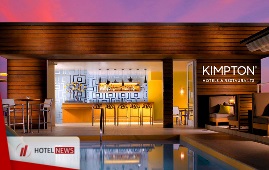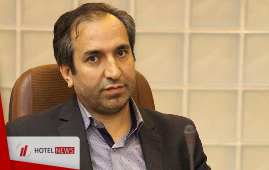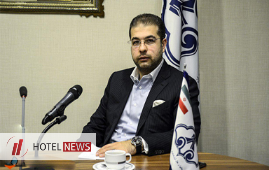
Vancouver-based REIT American Hotel Income Properties completed its sale of 45 economy assets and agreed to purchase 12 premium-branded ones. The move aligns the company’s structure closer to U.S. REITs and better presents itself to investors, executives said. VANCOUVER, British Columbia—Canadian real estate investment fund American Hotel Income Properties on 28 November agreed to acquire a portfolio of 12 premium-branded hotels in the U.S. for $191 million. The move sees the Vancouver-based AHIP move further up the segment ladder and concentrate on higher margins and yielding. With this announcement, the company also said it closed its previously announced sale of a 45-hotel economy portfolio to an affiliate of Vukota Capital Management for total gross proceeds of $215.5 million. The latest deal caps off a period of restructuring for AHIP. In April 2018, the company transferred management of all of its portfolio, at the time 115 hotels, to Texas-based Aimbridge Hospitality, as part of its strategy to become a pure owner. Then in July 2019, AHIP agreed to the deal with VCM. The VCM deal, which closed on 28 November, saw AHIP exit the economy segment and funded its latest acquisition, which comprises 12 hotels and 1,203 rooms in the U.S., in Michigan, Minnesota, North Dakota, Pennsylvania and Texas. The largest hotel by room count is the 120-room Courtyard St. Paul Woodbury in Minneapolis. Seven assets are managed by Marriott International, four by Hilton and one by InterContinental Hotels & Resorts. Aimbridge merged with Interstate Hotels & Resorts on 25 October, although between the AHIP-Aimbridge deal and the Aimbridge-Interstate merger, AHIP renegotiated its management-fee structure with Aimbridge. In an investor update released in coordination with the agreed-to buy and completed sale, AHIP said the new management-fee structure will “strengthen (its) margins, cash flow and growth potential over the next several years.” Expected to close by the end of the month, the 12-hotel buy now gives AHIP 79 assets and 8,887 rooms in its premium-brand portfolio. Jamie Kokoska, AHIP’s director of investor relations, said the completion of the sale of its 45 economy hotels alongside its new acquisition has transformed AHIP into a “pure-play” premium-branded hotel company. The 12 hotels have been acquired at an “approximate 8% capitalization rate” and, with all built in the last five years, at below replacement cost, she said. “By selling our economy-lodging portfolio, our business has become more streamlined and efficient and allows us to focus solely on driving growth from our growing portfolio of premium-branded hotels,” Kokoska said. “We believe these transactions will also better align our company with other publicly traded U.S. hotel REITs and hopefully make our business more easy to understand for investors. Ultimately, we hope our trading multiples will more similarly reflect those of the broader hotel REIT sector,” she said. Segment shift AHIP CEO John O’Neill said in the news release announcing the deal that the “mostly all-suite” deal is the final chapter that completes “a significant component of our 2019 capital recycling program.” Kokoska said Aimbridge will likewise manage the new portfolio. Troy MacLean, equity research analyst at Toronto-based BMO Capital Markets, agreed the deal moves AHIP farther up the segment scale. “The sale and new purchase is less about a price-point strategy than about becoming more of a pure play. They like select-service hotels,” MacLean said. The hotel stock, both the bought and the sold assets, also is different in market and format, MacLean said, with the latest deal being likely an economically safer platform and one providing higher margins. “The rail hotels were in tertiary markets with basically one buyer. When the rail business declined, they really suffered,” MacLean said, referring to the assets in the VCM deal and their associated rail crew-lodging contracts that were also transferred. Kokoska said the new buy, due to close by the end of the year, continues AHIP’s strategic decision to focus on higher-quality, select-service premium-branded hotels that inherently have higher average daily rates. The focus will remain primarily on the upper midscale to upper-upscale chain scales, mostly with brands offering suites or extended-stay accommodations located mostly in metropolitan secondary markets outside of the Top 25 in the U.S. “Another target is to be in markets near multiple demand generators such as hospitals, universities, business parks and stadiums. We believe these kinds of hotels have the ability to provide strong, sustainable returns, while also being defensive in changing market conditions,” Kokoska said. “These kinds of hotels do often generate higher margins due to less frequent guestroom turnover and lower operating expenses,” she said. As of 27 November, AHIP’s market capitalization stood at $505 million Canadian dollars ($380.2 million), according to the investor update. That update also showed the revenue-per-available-room rise across AHIP’s portfolio, even with inflation being taken into account, with that metric in 2013, when its assets were all in the economy segment, being $46.15; in September of this year, excluding the 45-asset economy-segment sale, being $76.80, and for just the 12 agreed-to hotels—although the rest of the portfolio is not included in the calculation—$97. The average room count also has increased in the last six years from 80 to 115, with the 12 new hotels averaging 100 rooms. Despite being listed on the Toronto Stock Exchange, Kokoska said AHIP still has no immediate plans to open its wallet for Canadian assets.
Create: Dec 3, 2019 Edit: Dec 3, 2019 International News
Pebblebrook Hotel Trust is looking to sell three of its D.C. hotels. The 82-room Hotel Madera, the 99-room Topaz Hotel and the 137-room Rouge Hotel, all Kimpton-managed properties, are being marketed for sale. Pebblebrook declined to comment for this story. All three hotels are in Dupont Circle — the Madera at 1310 New Hampshire Ave. NW, Rouge at 1315 16th St. NW and the Topaz at 1733 N St. NW. The properties can be acquired together or separately, according to the listing. It’s also possible they will not remain hotels. The listing notes that there is “multifamily optionality” for all of the properties. The three hotels are part of a large footprint Kimpton has in D.C. In all, the company manages 10 hotels in D.C. and one in Alexandria. If sold to someone who wants to keep them as hotels, they may not retain the Kimpton management, however; the listing notes that all three can be sold without the brand. It’s also possible they will not remain hotels. The listing notes that there is “multifamily optionality” for all of the properties. The three hotels are part of a large footprint Kimpton has in D.C. In all, the company manages 10 hotels in D.C. and one in Alexandria. If sold to someone who wants to keep them as hotels, they may not retain the Kimpton management, however; the listing notes that all three can be sold without the brand. The potential sales are not surprising. Pebblebrook’s acquisition of fellow real estate investment trust LaSalle Hotel Properties in 2018 gave the combined company a total of 10 hotels in D.C., more than Pebblebrook CEO Jon Bortz said he was willing to keep. Pebblebrook prefers to keep its portfolio more West Coast-heavy, Bortz said in an interview with WBJ back in December. Most of the D.C. hotels were part of LaSalle portfolio; the only two that Pebblebrook owned were the Hotel Monaco — also a Kimpton — and the Sofitel Washington D.C.
Create: Jul 13, 2019 Edit: Jul 17, 2019 International News
High-growth companies slow down as they expand. Booking.com is hoping to defy that by investing into new markets like alternative accommodations. But progress has been slow. During the first-quarter, Booking Holdings saw its total revenues decline 3 percent, year-over-year, to $2.8 billion. One path to new growth could be more acquisitions, CEO Glenn Fogel suggested on an earnings call last week. During the call, Fogel said three times that he was considering opportunistic mergers and acquisitions. It wasn’t clear what size company or sector he had in mind. The inferred context was that the conglomerate has several opportunities to knit together an interlocking set of travel services to do a better job of cross-selling and upselling customers on an array of products throughout the life of a trip.
Create: May 28, 2019 Edit: Jun 22, 2019 International News
Hotel News – the president of the hoteliers association of Iran, explained about the implementation of the "Cheap Travel" project by the Cultural Heritage, Handicrafts and Tourism Organization, in collaboration with the banks and tourism institutions: "If this project is even implemented for a period of 6 months to one year, Can help developing travel in our country.” The president of the hoteliers association of Iran, pointing out that this plan is not intended to be like previous, long-term and permanent project. “all tourism sectors, such as transportation, hotels, travel agencies, catering, etc., should help the project effectively and in a better way.” He continued. The "Cheap Travel Plan" will help, because all these activities will benefit the tourism industry and the people. The president of the hoteliers association of Iran, reaffirming the support of the project, said: "If the necessary support is provided, the "Cheap Travel Plan” will succeed in a certain period of time, in a better way than the previous plans proposed by the others.” "Jamshid Hamzezadeh" said hoteliers are ready to provide tourism agencies with a view to expanding domestic travel to provide discounts and spare capacity for them. He said: "Successful implementation of the "Cheap Travel Plan" in the country, while helping to reduce travel services, can improve the economic situation and investment in tourism facilities, increase the hotel occupancy rate, business prosperity of agencies and travel and tourism offices, and Keep the trip in the Iranian family basket. He further noted that “the decline in the average occupancy rate of hotels in the country and added: Unlike the statistics provided by the Cultural Heritage, Handicrafts and Tourism organization, the hotel occupancy rate has decreased by 10% compared to the same period last year. In fact, the hotel's passengers decreased, which is due to the economic conditions of the people and the expansion of informal centers in the country.”
Create: Jan 20, 2019 Edit: Jan 26, 2019 Regional News
A lobbying firm backed by Saudi Arabia booked hundreds of rooms at the Trump International Hotel in Washington shortly after the 2016 election, The Washington Post reported Wednesday. The firm, Qorvis/MSLGroup, "has long represented the Saudi government in the United States," according to the Post. The group booked nearly 500 nights at the hotel to house US military veterans who were invited to DC to lobby against a law the Saudis opposed, the Post said, citing veterans and organizers of the trips. "In all, the lobbyists spent more than $270,000 to house six groups of visiting veterans at the Trump hotel, which Trump still owns," the paper said. Although the bill for the rooms was footed by the Saudis, only American veterans stayed in them during trips in December 2016 and January and February 2017, according to the paper. The Post reported that veterans were recruited to lobby lawmakers against the Justice Against Sponsors of Terrorism Act, which "opened the door to costly litigation alleging that the Saudi government bore some blame" for the September 11, 2001, terrorist attacks. Some of the veterans, according to the paper, didn't know they were staying in rooms paid for by the Saudis. "It made all the sense in the world, when we found out that the Saudis had paid for it," Henry Garcia, a Navy veteran from Texas who went on several of the trips, told the paper. During previous trips, the firm had booked rooms at a hotel in Virginia, the Post reported. But lobbyists, according to the paper, said they decided to stay at the Trump-branded hotel because of its room availability and discounts it had at the time; the goal was not to patronize one of President Donald Trump's hotels. Citing financial records, the Post said that on average, rooms at the hotel went for $768 a night around the time of the visits. A representative from the hotel declined CNN's request for comment, and the Saudi Embassy in Washington and Qorvis/MSLGroup did not immediately respond to CNN's requests for comment. CNN previously reported on two lawsuits by DC and Maryland that claim Trump is in violation of the Constitution's ban on emoluments -- payments from foreign or domestic government entities to the president -- because of his continued interest in the Trump International Hotel. The Post reported that the payments by the Saudis have become "ammunition" in the suits. DC and Maryland have said the Trump International Hotel's operations put other nearby hotels and entertainment properties at a competitive disadvantage and that the Trump hotel got special tax concessions. The hotel won its lease on federally owned property in 2013, well before Trump's election. On Wednesday, subpoenas served to the Trump Organization and a dozen related business entities by the attorneys general of the District of Columbia and Maryland included demands for tax documents, which, if obtained, could begin to fill out a picture of the President's finances by providing information about his main income sources.
Create: Dec 9, 2018 Edit: Dec 9, 2018 International News
Hotel New - The impact of the earthquake and Joint Comprehensive Plan of Action on the reduction of 50 percent of the demand for hotels in Tehran "The demand for accommodation in hotels across the country has dropped dramatically since last month, and we have faced a 50% drop in demand in Tehran," said Deputy of the Hoteliers Union of Tehran. The Ghaffarian emphasized the impact of the tourism and hotel industry on the country's economic and political situation and said: "The decline in demand for accommodation in capital hotels depends on a number of factors, including the issue of earthquakes and challenges of Joint Comprehensive Plan of Action." He said: "The standardization of Tehran hotels has been a very good occurrence that began several years ago, and now it has operated more than 95 percent in cooperation with the Hotelists' Union and the Office of Cultural Heritage, Handicrafts and Tourism Organization of Tehran. "Hotel industry with more than 100 categories is involved in the purchase of goods and services," said Ghaffarian, in another part of his remarks regarding the increase in hotel and accommodation costs. “Consequently, changes in the market also affect the cost of services in hotels. ”
Create: Oct 20, 2018 Edit: Oct 21, 2018 Regional News
